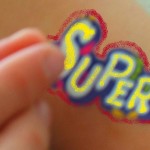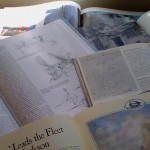 Belonging to a group can be a positive, even powerful experience. It can enable us to feel understood, while inferring a set of defined expectations to other “non–belongers”. But it can also bring some unexpected labels, even exclusions.
Belonging to a group can be a positive, even powerful experience. It can enable us to feel understood, while inferring a set of defined expectations to other “non–belongers”. But it can also bring some unexpected labels, even exclusions.
Anyone who’s been labelled knows how much this sticks. A label, just like a group, can be a positive thing. We can be called a great thinker, become known as skilled and reliable; creative and exciting. But there are some labels that are pretty hard to live down.
The reality is we all have an inherent desire to belong.
If we can’t find acceptance and identity with one group, we’ll seek it out with another. Groups in this context can be a place to call home—or a soul destroying exclusion zone, creating a devastating reality for people who struggle to fit. I think we’d be surprised how many of us experience exclusion at one time or another. School yards can be a minefield for such skirmishes.
To fit, people sometimes feel obliged to do or embrace just about anything to be loved; accepted. The wounds and rejection suffered along this potholed road of torture only further impel choices to put as much of a barrier between attackers, while forging identify with the new tribe.
It’s tragic when these wounds are suffered in what should be a safe environment. Yet, we humans tend to be inherently piranha–like in our treatment of outsiders—those who don’t fit with us; our worldview.
I’d never really understood the power of a label as much as when I left my chosen field last year. I had no guarantee I’d be stepping back into that profession so soon—or at all. I grappled with self-value as my confidence diminished, and felt as if my identity was being stripped away.
Sometimes we lose a tag by choice—we mightn’t like where we are and realise we need to break ties, or we might want to move into a new stage of life. Other times life dictates changes that force us to move beyond our circle of comfort. This can be a huge loss. We need to recognise that it takes great courage for people who have found belonging in a given group to relinquish those tags. For even groups that aren’t so affirming can still offer identity and a sense of belonging. Conversely, we need to be able to see people’s value for who they are, not the labels they wear. This can be difficult when there are strong societal stigmas that resist label removal.
When barriers exist because of labelling, it can create a divide that seems difficult to bridge. Perhaps a key to building connections is remembering that each of us have value that cannot be defined or lessened by the circles we move in. Creating a culture of inclusion can enable us to embrace others without expecting them to pass preset criteria for acceptance. What a gift if we can forge this quality towards those around us.
